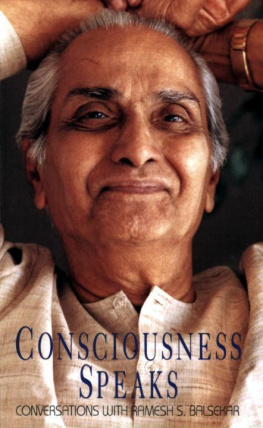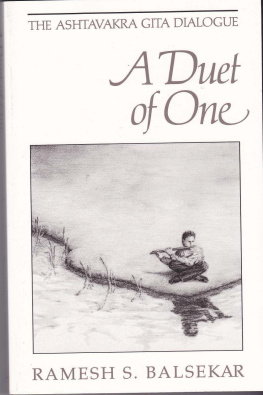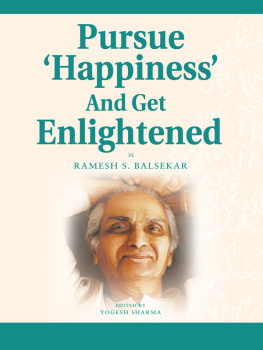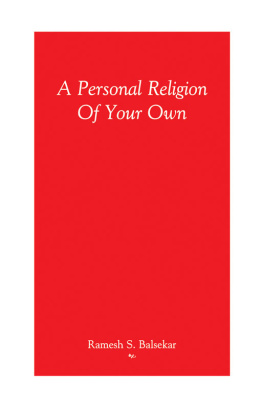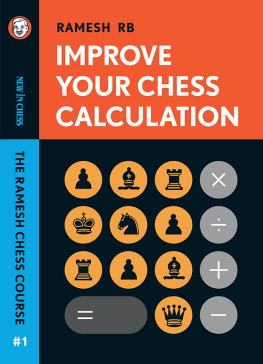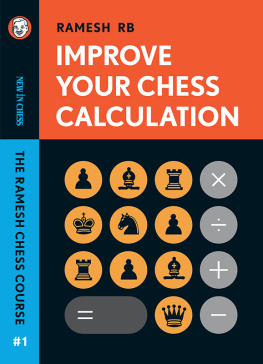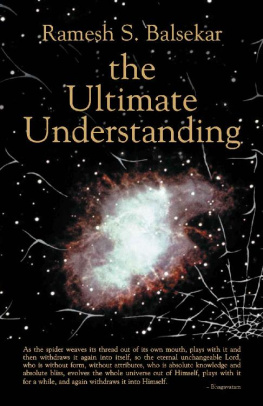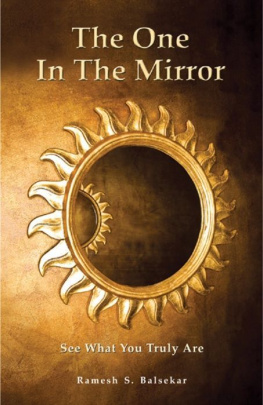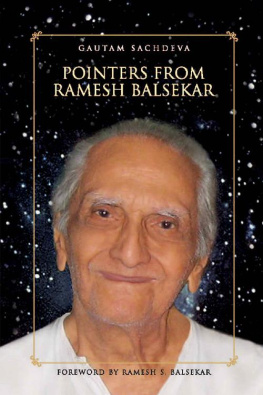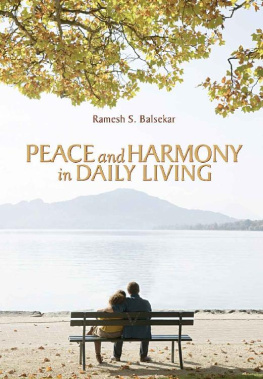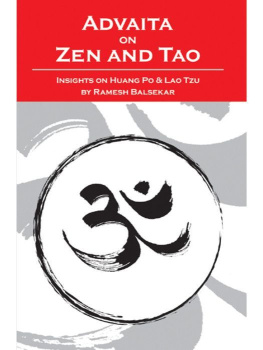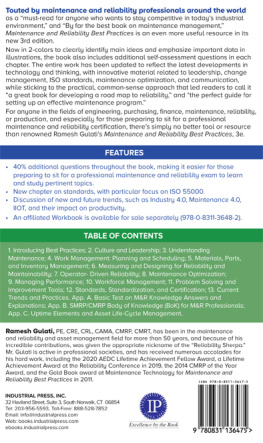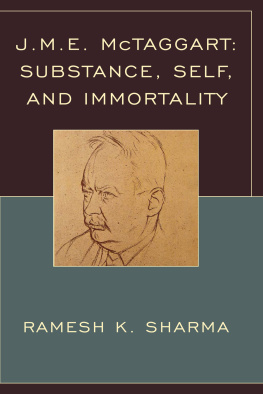Other hooks by Ramesh S. Balsekar
Head In
Ripples (a booklet)
1he final Truth
Al 1)11et O1(
(017sc7(l/sness to (OnsC/Ol/Stress
the iearhinr,>
;1 Net Of teie'els
Writes
the (;it,? (commentary)
Intel IIIe Hternal
Fyvriern-e crf Inunrrrtality
I'Ointe/s Iirom Nisargadatta Maharaj
CONVERSATIONS WITH RAMESH S. BALSEKAR
Edited by Wayne I,iquorman



Dedicated in Reverence
To the original miracle;
Consciousness,
Not aware of Itself,
Suddenly,
Inexplicably,
Causelessly,
Becoming
Aware
of
Itself.
The I Am that I Am
Chapter 1
.... 9
Chapter 2
.... 15
... 15
.... 20
.... 26
.... 37
.... 50
.... 61
.... 72
... 82
.... 89
.... 93
.... 97
.... 97
Chapter 3
.... 99
.... III
Chapter 4
Chapter 5
.... 135
.... 135
.... 138
.... 139
.... 143
Chapter 6
.... 152
.... 157
.... 175
.... 177
Chapter 7
.... 182
.... 187
.... 202
.... 208
.... 218
.... 219
.... 232
.... 240
.... 271
.... 290
.... 294
... 302
.... 313
.... 318
Chapter 8
.... 321
....324
.... 326
.... 328
.... 329
Chapter 9
.... 338
.... 347
.... 348
Chapter 10
.... 353
.... 353
.... 360
Chapter 11
.... 372
.... 373
.... 377
.... 380
.... 381
Chapter 12
.... 386
The editor wishes to acknowledge the efforts of the following body-mind mechanisms who did all this work for Nothing: Chuck Surface, who created the skeleton on which all these words hang, mahatranscriber Margie Harris and her beloved Mac, Norton and Albie Smith - the raiders of the lost file, Kamala Poopal, Baja Henry Swift, Roy Gibbon, Ananda Grimm, Jim Schoonover, Gail Ramey, Ardeliza Lansang, Velia Anderson, Peter Cripps, Carol Zahn, Connie Magwood, Stephanie Potter, Lisa Webber, as well as all of the others whose paths are well paved.
Blame for any and all errors should be addressed to proofreaders Lee Scantlin, Garry Dufresne, Dorothy Doyle and especially to Dr. Gary Starbuck (if you can find him) who, a split infinitive he couldn't heal, he never met.
The editor, for his part, maintains a comfortable refuge in his claim of ignorance of all things grammatical and punctuative. While in school, he was undoubtedly not paying attention when such matters were discussed-the only practice he maintains religiously to this day.
All there is, is Consciousness. If that is understood completely, deeply, intuitively then you need read no further. Put the book down and go on joyously with the rest of your life.
If, however, you belong to that massively larger group of people who consider themselves people, then perhaps there may be something here for you. As the editor, I can assure you that it is really a very good book. I've read it. Some might find it a bit short on explicit sex, violence and like entertainments, but it is a good book nonetheless. In fact, if you are one of those poor creatures who have been stripped of your certainty about who or what you truly are, then what follows might be of help.
Caveat Emptor, let the buyer beware.
Embodied herein is not the Truth. The Truth cannot be held between the covers of a book. What we have here are pointers, sign posts, guides; each in a slightly different language describing, perhaps, slightly different routes, but all meant to indicate the same destination... Right Here, Right Now.

Ramesh, in what I heretofore had considered to be his infinite wisdom, has asked me to tell you my story in this introduction. Those of you who have attended Ramesh's talks might already have heard parts of it. He is fond of telling it, though sometimes with questionable command of the details. Parts of it will also be found scattered about this book wherein he mentions me as something of a poster boy for Grace. I am the hang glider pilot he mentions whose life was actually saved by crashing through some power lines. I am also the "gentleman habituated to alcohol" (his kind way of saying, "a hopeless alcoholic") who one day wakes up after nineteen drunken and drug-addicted years to find that the obsession to drink and use drugs has been miraculously removed.
There is a sanskrit word, sadhana, which refers to the practices one does to advance along the path to enlightenment. It is generally thought of in conjunction with such practices as meditation, chanting, prayer, fasting, ritual observances, charity work etc. Its aim is to free one from total identification as the ego. At the time I was "struck sober" I had never done any of these things. I had no interest in enlightenment or anything else beyond the immediate satisfaction of my desires. I believed myself to be the center of the universe and was convinced that I could do anything I set my mind to. Spirituality, religion and "the rest of that crap" was for weaklings and cowards, people too afraid to take responsibility for their own lives. Ramesh helped me to understand that my nineteen year long sadhana had been to drink and drug my "self" into submission. He told me, "Nothing is wasted, everything is preparation for the next scene."
The experience of feeling such a long-standing obsession disappear in a heartbeat finally got my attention. There was no denying that I hadn't done it. Something had done this to me. I knew deep in my guts that some power greater than my egoic self must be at work and I set about finding out what that force might be. I was fortunate to then meet another recovered alcoholic who had had a similar experience and he introduced me to The Tao Te Ching. Despite the fact that I didn't understand them, I intuitively felt that those simple verses pointed directly to the truth.
Convinced that I needed to do something to speed the process along, I took up Tai Chi Chuan, dabbled in a variety of meditative practices and for the next two and a half years just generally wandered around in the spiritual marketplace. Then, a flier arrived in the mail advertising a talk by some guru from India that I'd never heard of, but since admission was only a buck I thought, "What have I got to lose?"
On September 16, 1987 I went with some friends to hear Ramesh at his first public talk in the U.S. (or anywhere, for that matter). I was thirty-six years old and couldn't have dreamed what was in store for me, that I was about to lose everything. I had no idea that it was a moment of consummate Grace. I didn't know what a jnani was, or that one had just bitten me. I was, at that point, a complete stranger to Advaita. I had never heard of the big Advaitic names, Nisargadatta Maharaj or Ramana Maharshi and knew the word "consciousness" only as that condition extant prior to being hit on the head with a baseball bat. This put me at a profound advantage. I had far fewer spiritual concepts to transcend than did most of the other, far more experienced, seekers in the room, though at the time I felt I had blundered into something that was way over my head. Ramesh himself, appeared in every way ordinary; a fairly intellectual, retired bank president, unpretentious and mild mannered. I left that meeting with a slight interest in seeing Ramesh again.

